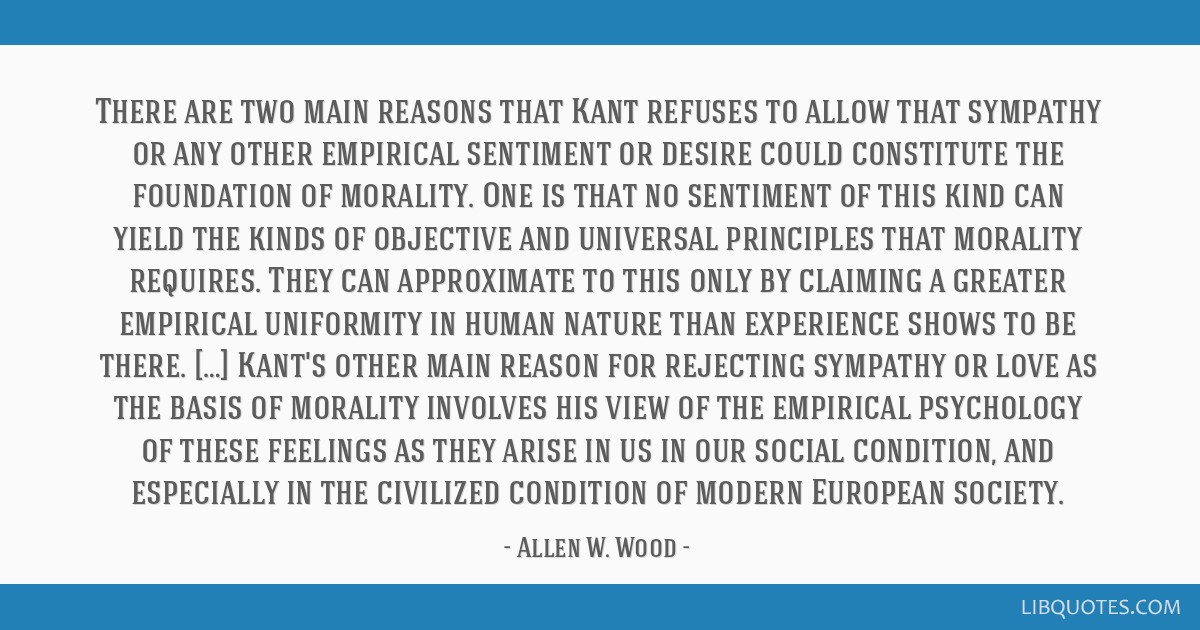There are two main reasons that Kant refuses to allow that sympathy or any other empirical sentiment or desire could constitute the foundation of morality. One is that no sentiment of this kind can yield the kinds of objective and universal principles that morality requires. They can approximate to this only by claiming a greater empirical uniformity in human nature than experience shows to be there. […] Kant's other main reason for rejecting sympathy or love as the basis of morality involves his view of the empirical psychology of these feelings as they arise in us in our social condition, and especially in the civilized condition of modern European society.
Kantian Ethics (2008) - Ch. 2. Moral Worth























